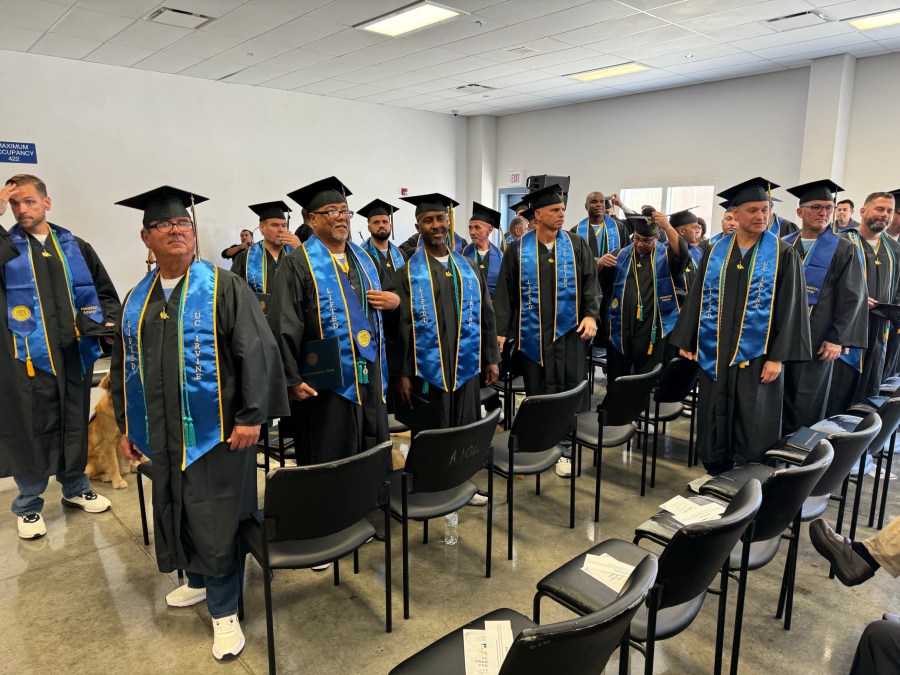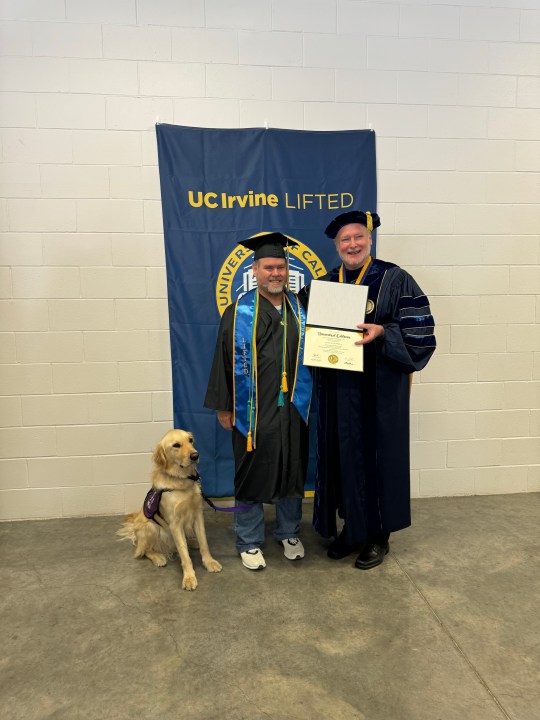For former convicts, transitioning from prison life to society often comes with pitfalls and unexpected risks that could lead to another unfortunate stay behind bars.
For 23 incarcerated individuals in California, a new program is helping them re-enter civilian life with more than they had when they entered the correctional system.
Earlier this month, through a groundbreaking partnership between the California Department of Corrections and Rehabilitation and the University of California, those 23 people will have bachelor’s degrees to lean on when they restart their lives.
The incarcerated students at the Richard J. Donovan Correctional Facility in San Diego received in-person education from UC Irvine instructors as part of a collaboration between CDCR and the University of California.
The program is called Leveraging Inspiring Futures Through Educational Degrees, or LIFTED.
LIFTED allows inmates to apply to transfer into UC Irvine as juniors and earn a bachelor’s degree in sociology while serving their sentences. Those who received their degrees last week are the first graduates of the program, having begun taking courses in 2022.
It’s part of a greater reimagining of California’s correctional system with a larger emphasis on rehabilitation, officials said.
“California is transforming its criminal justice system to focus on true rehabilitation, justice, and safer communities statewide — known as the California Model,” said CDCR Secretary Jeff Macomber said in a news release. “This collaboration with the University of California allows these graduates to build a foundation focused on pursuing educational opportunities that will prepare them for a successful future while making our communities safer.”
CDCR officials said incarcerated individuals who participate in correctional education are nearly 50% less likely to return to prison within three years as compared to those who did not have access to the same opportunities.
The California legislature and Gov. Gavin Newsom have allocated $1.8 million for the program through 2027.
“The state continues to move toward a positive shift in correctional policy, through implementation of the California Model, which not only focuses on proper support for staff and survivors but also fosters rehabilitative environments, including educational opportunities, for the incarcerated population, leading to safer communities overall,” CDCR officials said.
CDCR has partnered with colleges and other higher education programs to offer associate, bachelor’s and master’s degrees through California colleges. More than 13.5% of the CDCR incarcerated population are enrolled in college courses, officials added.























